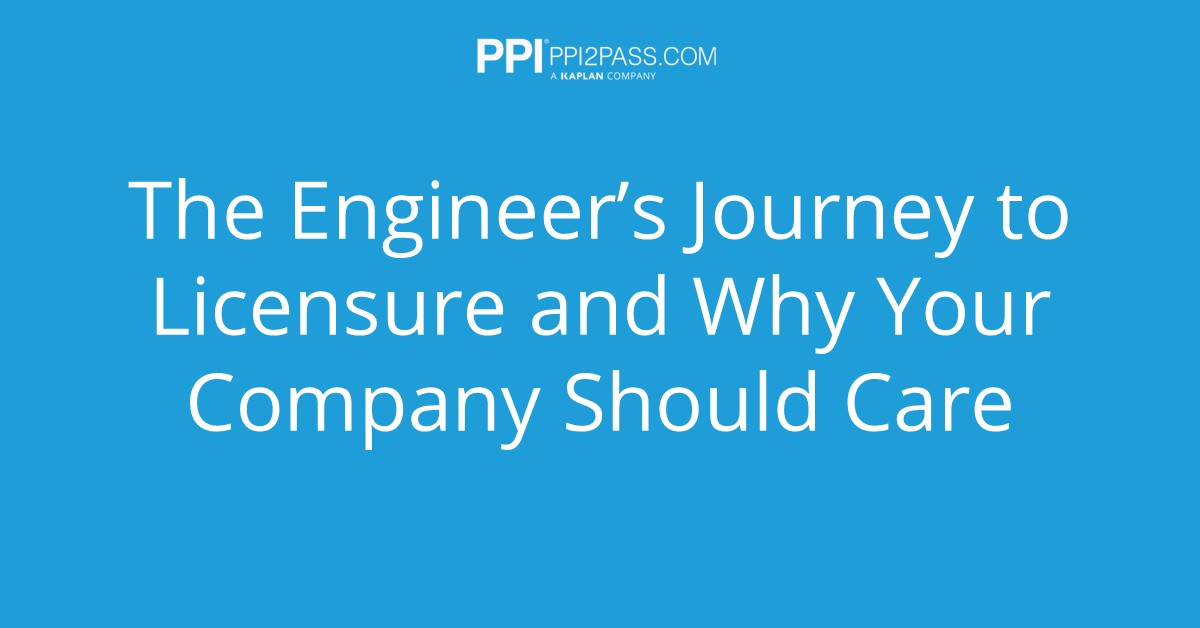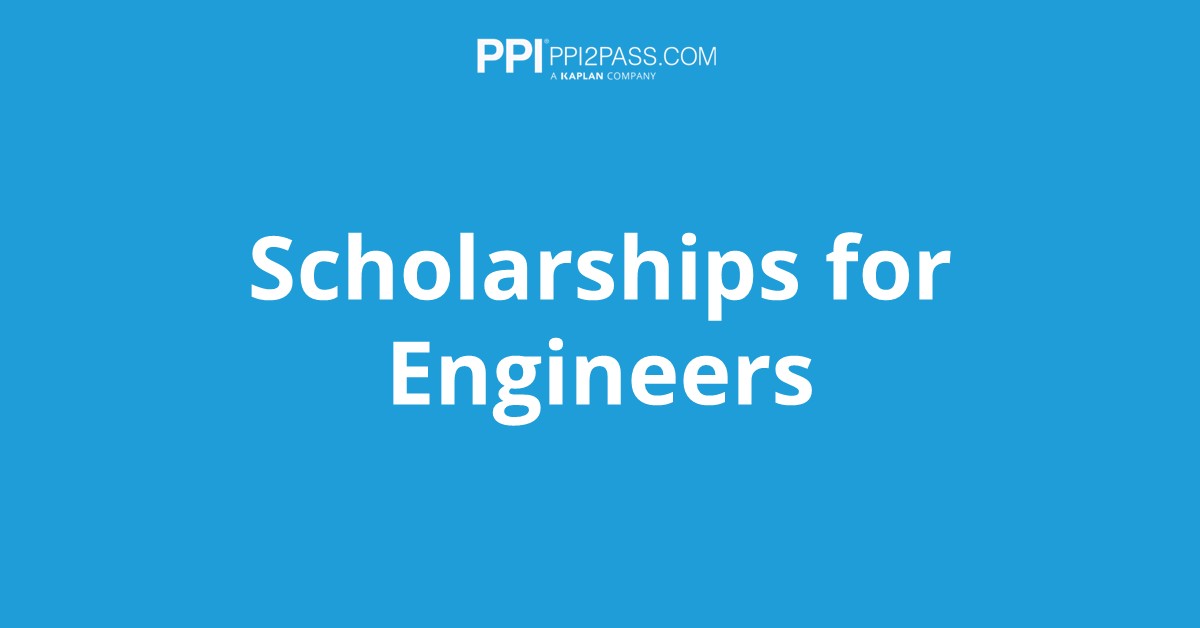Why engineers should get their Project Management Professional (PMP)Ⓡ certification

In today’s competitive job market, engineers need more than just technical expertise to stand out–they need proven leadership skills and a strong understanding of how to manage complex projects from start to finish. That’s where the Project Management Professional (PMP) certification comes in.
Offered by the Project Management Institute (PMI), the PMP is a globally recognized credential that validates your ability to lead teams, manage resources, and deliver successful projects across industries. For engineers, combining the PMP with a Professional Engineer (PE) license can significantly boost your career potential, increase your salary, and open the door to leadership roles in engineering and beyond.
From expanding your leadership potential to enhancing your technical credentials, earning your PMP certification can be a game-changer for engineers looking to advance their careers, increase their earning potential, and stand out in a competitive field.
How a PMP Certification Can Help You & Your Career
Earning a PMP certification doesn’t just expand your skill set–it transforms the way you approach your engineering career. As projects grow more dynamic and interdisciplinary, companies increasingly seek professionals who can lead with both technical insight and strategic foresight.
For engineers, the PMP provides a clear pathway to:
- Career Mobility: PMP-certified engineers can move more easily between roles, departments, and even industries–whether into construction project oversight, product development leadership, or cross-functional coordination.
- Leadership Visibility: A PMP helps you stand out for promotions and leadership roles by validating your ability to manage timelines, budgets, teams, and stakeholder expectations.
- Stronger Job Security: As businesses prioritize efficient project execution, those with formal project management training are better positioned during organizational shifts or economic downturns.
- Professional Recognition: Holding a PMP signals to peers, clients, and employers that you meet a global standard of excellence in project leadership.
- Better Project Outcomes: Engineers with PMP training are more likely to deliver projects on time and budget, directly impacting team success and organizational performance.
In a competitive landscape where technical qualifications alone may no longer be enough, the PMP empowers engineers to grow into influential, future-ready professionals.
Core skills you gain with PMP certification
While engineers often gain technical expertise through education and licensure, the PMP certification focuses on the structured processes and leadership strategies needed to guide complex projects from start to finish. Earning a PMP means gaining proficiency in:
- Project lifecycle management–from initiation to closure.
- Time, cost, and scope control.
- Resource allocation and scheduling.
- Risk identification and mitigation.
- Communication with stakeholders and cross-functional teams.
- Leading and motivating project teams.
The PMP also emphasizes flexibility, teaching best practices for predictive, agile, and hybrid project environments. This allows engineers to adapt their management style to a variety of project types and industries. By mastering these skills, engineers with PMP certification are better equipped to lead teams, drive outcomes, and bridge the gap between technical execution and strategic oversight.
How the PMP certification complements a PE license
The PE license proves an engineer’s technical knowledge and ability to design and oversee safe, effective engineering solutions. The PMP certification, on the other hand, showcases an engineer’s ability to manage the people, processes, and priorities behind successful project delivery. When combined, these two credentials create a powerful professional profile.
Key ways the PMP enhances the PE licensure
- Bridges the Technical and Managerial Gap: While the PE focuses on design and analysis, the PMP emphasizes execution, coordination, and leadership–making engineers more effective in real-world project environments.
- Strengthens Cross-Functional Communication: PMP training equips engineers with the communication and collaboration skills needed to lead diverse teams and engage with stakeholders at all levels.
- Improves Project Outcomes: Engineers with PMP certification follow standardized project management methodologies, helping reduce delays, stay on budget, and ensure quality across every phase.
- Expands Career Flexibility: The PMP is industry-agnostic, meaning engineers can apply their combined technical and leadership skills in construction, tech, energy, manufacturing, government, and more.
- Signals Commitment to Professional Growth: Holding both credentials demonstrates initiative and a dedication to continuous learning, making you a more competitive candidate for leadership roles.
By earning both your PE and PMP, you show employers that you’re not just an expert in engineering–you’re equipped to lead complex projects from concept to completion.
PMP certification impresses employers
One of the most common questions among engineers considering PMP certification is: Do employers care about PMP certification? The answer is a clear yes–especially in industries where managing budgets, teams, and timelines is critical to success. Many job postings in engineering, construction, and technology now list PMP certification as a preferred or required qualification.
Employers see the PMP as:
- A signal of formal training in project management.
- A trusted standard that reduces hiring risk.
- A quick way to identify candidates ready for responsibility.
In a competitive hiring environment, having a PMP on your resume can be a deciding factor, especially when applying for roles beyond purely technical work.
Why PMP certification matters in today’s engineering landscape
As industries face rising complexity, tighter timelines, and increasing stakeholder demands, the role of the engineer is changing. Today, engineers are expected not just to design solutions–but to lead them. The PMP certification helps meet that challenge by aligning your skills with where the profession is headed. Learn more:
- Meeting the Rising Demand for Project Leaders: According to PMI, the global economy will require 25 million new project management professionals by 2030. Engineers who hold the PMP are uniquely positioned to fill this gap, thanks to their technical background and growing leadership capabilities.
- Adapting to Cross-Disciplinary Workflows: Modern engineering rarely happens in silos. From renewable energy to smart infrastructure and aerospace, today’s projects require collaboration across IT, design, procurement, and compliance. PMP-certified engineers bring a shared framework and language to facilitate smoother integration across departments.
- Responding to Innovation and Change: Emerging technologies like AI, automation, and sustainable design are accelerating change across engineering disciplines. PMP training helps engineers manage these changes by providing structured methods for adapting scope, mitigating risk, and aligning with evolving goals.
- Competing in a Global Talent Pool: With companies operating on a global scale, credentials that travel well matter. The PMP is one of the most recognized project management certifications worldwide, enhancing your credibility whether you’re working remotely, applying internationally, or collaborating across borders.
- Aligning Projects With Business Strategy: Today’s engineers are expected to think beyond the blueprint. PMP certification reinforces strategic thinking–ensuring projects don’t just meet specs, but also support broader organizational goals like ROI, sustainability, and market differentiation.
Who should get PMP certification?
PMP certification is ideal for engineers who are ready to take on more responsibility, lead teams, and move into roles that require both technical knowledge and business leadership. Whether you’re mid-career or exploring a new professional direction, PMP certification can help you stand out in a competitive industry.
PMP certification is a strong fit if you are:
- A licensed PE looking to expand into project or program management.
- A mid- to senior-level engineer managing budgets, timelines, or teams without formal project management training.
- Working in industries with large, cross-functional projects such as construction, energy, manufacturing, or aerospace.
- Interested in transitioning into project-focused roles or hybrid positions that blend engineering and leadership.
- A technical expert who frequently collaborates with non-engineering departments like procurement, finance, or clients.
- Aiming to increase your salary, job security, or global mobility with a recognized credential.
The PMP isn’t just for people with “Project Manager” in their job title. It’s beneficial for any engineering professional who contributes to project success and wants to lead with confidence, clarity, and consistency.
Take the next step in your engineering career
Pairing technical expertise with project leadership is key to advancing in today’s engineering world–and earning your PMP certification is a powerful way to stand out. For engineers who already hold or are pursuing their FE or PE license, the PMP adds strategic management skills that open doors to higher-paying, leadership-driven roles.
Start preparing with PPI
Whether you’re just beginning your journey or looking to expand your credentials, PPI has you covered:
- FE Exam Prep: Build a strong foundation with trusted resources and practice exams.
- PE Exam Prep: Prepare with industry-leading review materials aligned with NCEES standards.
- PMP Exam Qbank: Access hundreds of practice questions, detailed solutions, and performance tracking to prep with confidence.
Join thousands of engineers who have trusted PPI to advance their careers–and take your next step today!
Industry Insights


